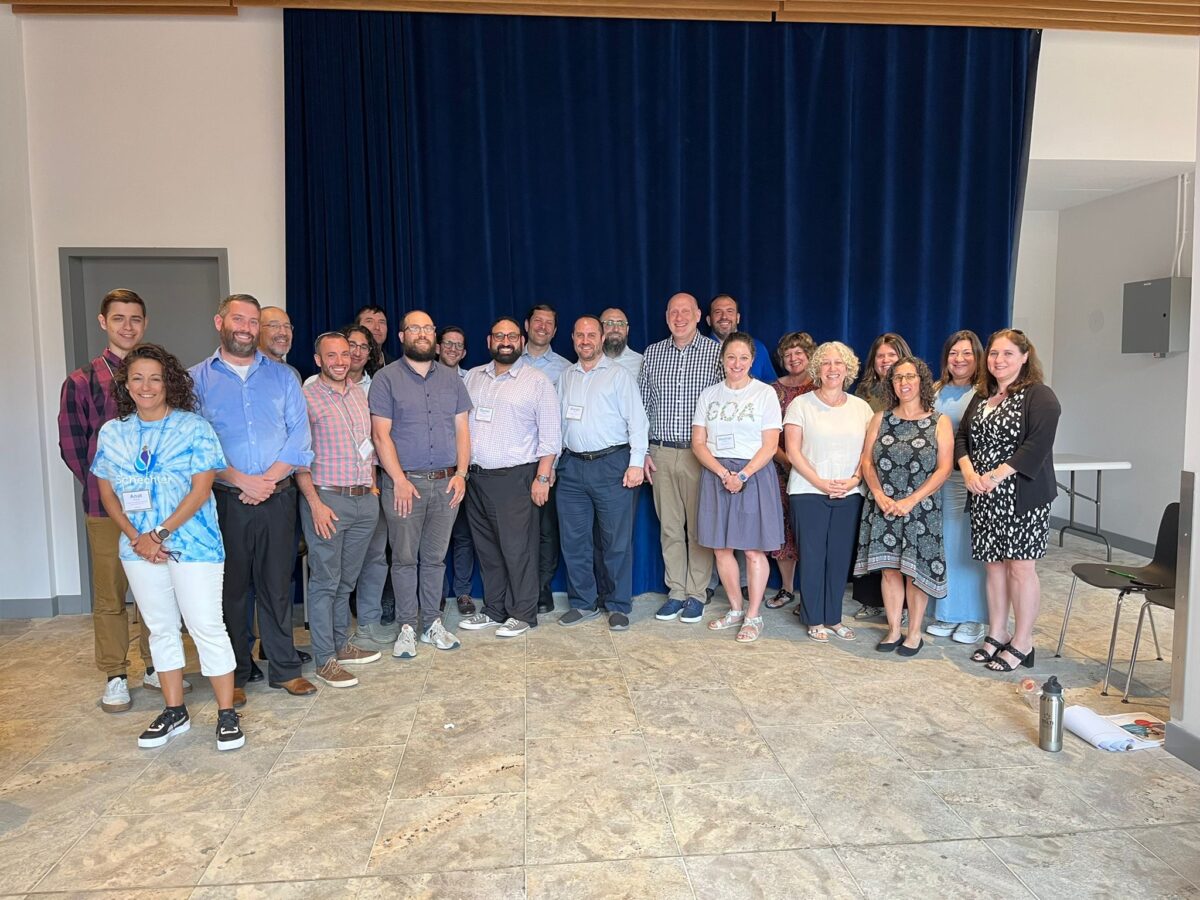I had the privilege earlier this month to spend two weeks in New York City, fulfilling my role as Mentor during the second summer of Cohort 12 of the Day School Leadership Training Institute (DSLTI). [I was a Fellow in Cohort 4 and you can revisit my blog post from last summer for more context about my experiences in the program, why I am serving as a Mentor and how it fits into my current role as Head of OJCS.] Like many programs coming out of COVID times, DSLTI navigated the transition from Zoom to in-person. Unlike just about every leadership capacity-building program I’ve ever participated in, however, DSLTI spends at least as much time in relationship development as it does in professional development.
As I sit in my office gearing up for the return of teachers as we prepare to open my sixth year at OJCS, that is my big takeaway – my “a-ha” moment from my deeply intense and nourishing time at DSLTI. And when you think about, it is a also a deeply Jewish idea about learning – that learning is amplified when it comes in and through authentic relationship. Yes, in order to discuss issues that matter, a certain baseline of trust is necessary in any group. Vulnerability, candor, and transparency are prerequisites to moments of meaning. But I don’t simply view “relationship development” as a necessary step on a ladder towards “professional development”. I am arguing that we learn more deeply and more significantly when we do it in relationship with like-minded fellow travelers. Your feedback, your thoughts, your suggestions, your guidance lands on me with exponentially added force and weight, when I know you. And when I say “know” in this context, I mean somewhere that’s neither at a superficial level, but also not at unreasonably overfamiliar level.
Professional intimacy.
That’s as close as I can come to connoting this idea. To help teachers, to help administrators, to help students, to help myself continue to grow – to ensure that everyone in the culture can be their most authentic self in service of performing at their highest potential – I believe more attention at OJCS should and will be put towards relationship-building and relationship-sustaining.
When our teachers return for Pre-Planning Week, we will, of course, schedule traditional “professional development” sessions that deal with the art and science of teaching. [I’ll share more about that as it draws closer.] There are ideas, both new and old, that require time to master and to review. There are skills that require training. There is tachlis planning that requires time so that we are ready to welcome our students back the following week. But we are also going to spend significant time (re)building relationships as we emerge from years of silos and isolated work.
A school is only as good as its teachers and teachers will only be their best when they are fully invested in each other, the culture, the community and the school. An excellent Social Studies or French or Hebrew or Math Teacher will likely deliver a quality product, regardless. But we don’t just teach Social Studies or French or Hebrew or Math at OJCS. We teach Maia and Moshe and Liam and Lori. To truly do that – to teach children and not just subject matter – means investing in relationships.
I cannot wait to welcome my team and my teachers back to school.

